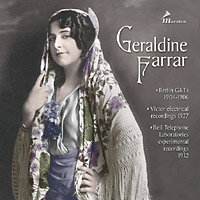In the wake of my posts about MUSO magazine (here and here), a small discussion has swirled in the comments to both posts, essentially about whether classical music should or shouldn’t have some of the trappings of popular culture, such as stars famous not just for their music, but also for their good looks. Some people–understandably–wish this wouldn’t happen, and that classical music could be (or remain, or become) mostly very serious. Like Bjork, someone said, not like Britney Spears.
My view is that this isn’t possible, at least not if we want classical music to be healthy financially. (For those who’ve read me, on the comments pages, saying this before, I promise: I won’t repeat it for a while.)
The serious wing of any branch of art or entertainment needs the popular wing. The book industry, publishers and bookstores, doesn’t stay alive by selling Proust. But by selling Tom Clancy, Dan Brown, Danielle Steele, whoever, the industry creates channels large enough to distribute–easily–copies of Proust to the relatively few people who want to read him.
For a musical example, I suggested that we imagine that Britney Spears was a classical music star. How big would the classical music business be, if that were true? But this might not have been helpful. Simply to imagine this seemed, at least to a few people, to trivialize classical music.
So here are some better examples from real life. Last fall, Reneé Fleming spoke at a forum at Juilliard. She and Stephen Sondheim were asked about the difference between art and entertainment, and, very strikingly, neither would draw any firm distinction. (See my http://www.artsjournal.com/sandow/2006/01/art_and_entertainment.html post on this.) In the course of the discussion, both Fleming and Sondheim were asked if they’d ever had to compromise on anything artistic, to do anything simply to sell their work to the public. Sondheim said he never had. Fleming said it happened to her regularly. Here’s one example she gave: She wanted to record Richard Strauss’s Daphne, her record company want her to record a CD of sacred songs. The compromise? She did both. Quid pro quo.
So how many copies did the http://www.amazon.com/gp/product/B000AM6OXK/104-2378990-0239966?v=glance&n=5174 sacred songs album sell? It featured chestnuts like “Ave Maria,” “Panis angelicus,” and “Amazing Grace.” I don’t have any information, but maybe I’ll guess that it sold 20,000 copies. That would be a lot–a triumphant, gigantic success–for a classical release. How many copies did Daphne sell? Maybe 3,000, which for a complete opera would be quite respectable.
But now suppose classical music was widely popular. Then maybe Sacred Songs would have sold 200,000 copies, or 2 million. And Daphne, if the ratio still held, would sell 30,000, or 300,000, the kind of numbers that serious and successful indie rock albums rack up. That would be good for classical music, wouldn’t it? I can’t see how anyone could say otherwise.
Here’s another example, from the past. Between 1906 and 1922, the leading soprano at the Metropolitan Opera was http://www.marstonrecords.com/farrar/farrar_liner.htm Geraldine Farrar, a striking, beautiful woman who said she was mainly an actor, not a singer, and who also made silent films. When she appeared onstage with the Met’s leading tenor, Enrico Caruso, sparks would fly, and tickets would sell.

And–as those silent films might suggest–both singers had fans outside the strict boundaries of the classical music world. Caruso was one of the first top-selling recording artists. He sold a million records, I’ve read, an astonishing number for anyone in the very early days of recording, when both records and equipment to play them on were expensive (and the population was much smaller).
Farrar had teenaged girl fans who came to be called “Gerryflappers,” and who’d flock to the Met to see her perform. When she retired from the Met, these fans unfurled banners, cheered, wept, and followed Farrar’s “flower-laden, open limousine” up Broadway. (I’m quoting from the site I linked to, which offers liner notes by Robert Baxter for a Farrar CD on Marston Records.)
Was this good for classical music? Absolutely. Intellectuals–or, more simply, people listening to Stravinsky and Schoenberg–probably didn’t care for Farrar and her Gerryflappers. But the existence of such things meant, once more, that classical music was important to our culture, and that intellectuals were listening to its intellectual repertoire, instead of mostly ignoring it, as they do now.
